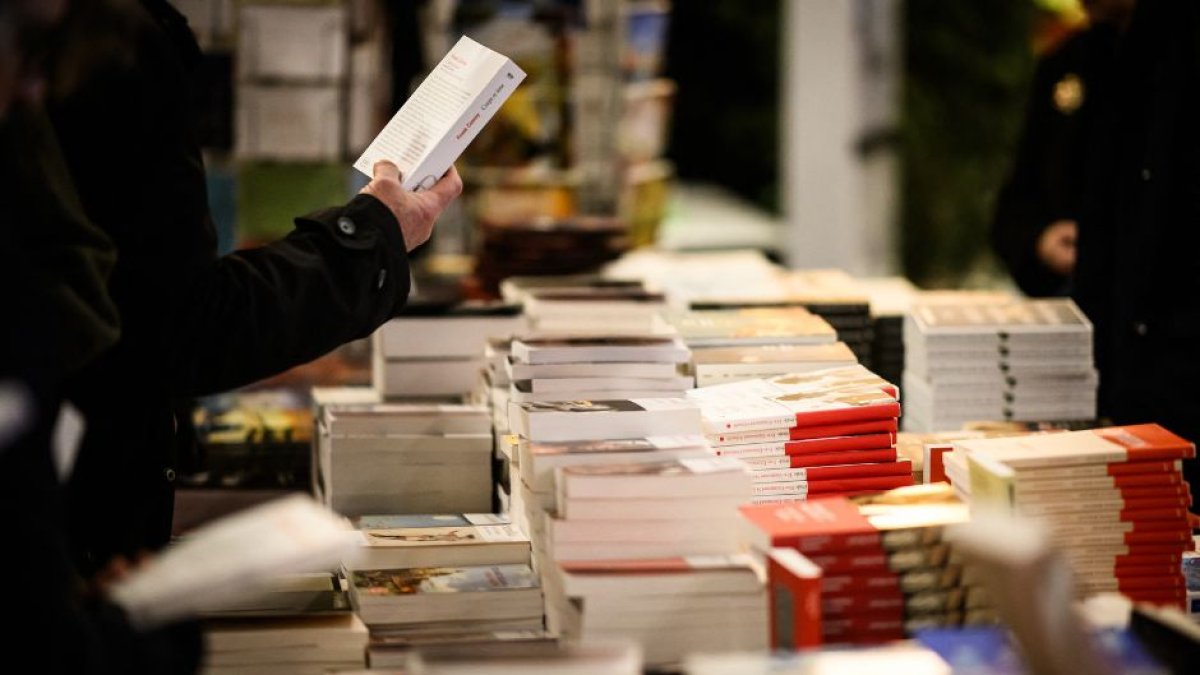Why doesn't the NYT bestseller list include best-selling books?
New accusations about the exclusion of books that lead sales on different platforms indicate that the newspaper includes or excludes books according to its preferences.

(/AFP)
Although The New York Times already made it clear in 1983 that its prestigious list of best-sellers has more "editorial content" than mathematical objectivity, each year new authors continue to be surprised by the arbitrariness with which the newspaper compiles this list. The new complaints from authors or publishers that their books top sales according to Amazon or other media but do not even appear among those highlighted by the NY-based newspaper, have once again highlighted the opaque criteria with which the medium justifies its selection. Elon Musk was the most forceful: "Pure propaganda".
"Everyone knows it’s make-believe"
Last week, two authors once again highlighted that the best-selling books are not necessarily reflected in the NYT list of best-sellers. Bad Therapy, by Abigail Shier, was the best-selling book on Amazon, which did not allow it to even appear on the prestigious list. Rob Henderson, who experienced something similar with his work Troubled, echoed Shier's lament and even went further: "Everyone knows it’s make-believe but they still fall for it. In the mean time, it’s up to all of us to support bold authors."
Although this "everyone" may sound pretentious, the truth is that the NYT itself was forced to acknowledge in court in 1983 that the list is "editorial content." That is, they themselves can choose to include or exclude books depending on whether they like them more or less. The newspaper's argument convinced the judge that year and the Supreme Court itself three years later, although it made much of the myth and glamor of the publication disappear.
The list "was not mathematically objective"
It was William Peter Blatty, author of The Exorcist, who was responsible for dismantling the presumed mathematical objectivity of the publication. The sequel to Blatty's well-known book, Legion, did not make the list, so the writer sued the NYT for six million dollars. In the case, he accused the newspaper of ignoring its publisher's true sales figures and of keeping the book off the list for "either negligence or intentional falsehood." Before the court, the NYT's lawyers argued that the listing of the books "was not mathematically objective, but that it was editorial content and, therefore, was protected by the Constitution under freedom of expression." Therefore, this is "editorial content, not objective factual content" and the publication has the right to exclude or include the books they prefer. The Supreme Court refused to review the case years later, so the ruling remains in force.
What does the NYT methodology say?
A priori, readers and - especially - authors think that the criterion by which the NYT best-seller list is governed is, precisely, the number of copies purchased by readers. One of the big doubts is knowing the sources from which the newspaper draws to prepare the document, which represents an added prestige and publicity for the publication, the author and the publisher. The only thing that points out in its methodology is:
However, it does not say which stores are participating, nor the criteria that leads them to select them. In the article Behind the New York Times' Bestseller Lists ("Not Top Rated"), the outlet explained the reasons:
They have no shortage of reasons for secrecy. In 2018, a publisher managed to bring an unknown writer to the top of the list of best-selling hardcover books for young people. For it, "the author and her publisher bought the book to get it on the list by strategically ordering large quantities of copies from stores that report their sales to the New York Times," as explained PJ Harris - a pseudonym under which two sisters wrote- in Kill Zone. The newspaper removed the book from the list as soon as the deception was discovered.
The NYT itself recognizes that large publishers invest thousands of dollars in inflating the sales of their books: "Although these practices are not illegal, they do not accurately reflect the public's interest in a book. They are also unfair to other authors who may not have hundreds of thousands of dollars to do so or who earn their ranking based on actual sales," the outlet notes.












